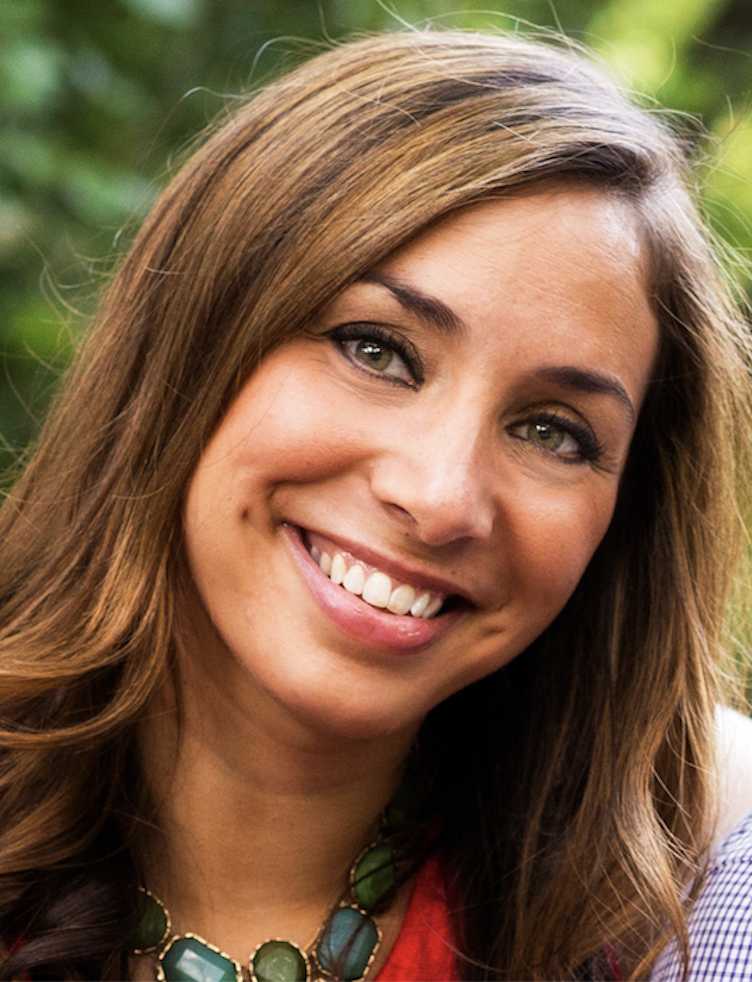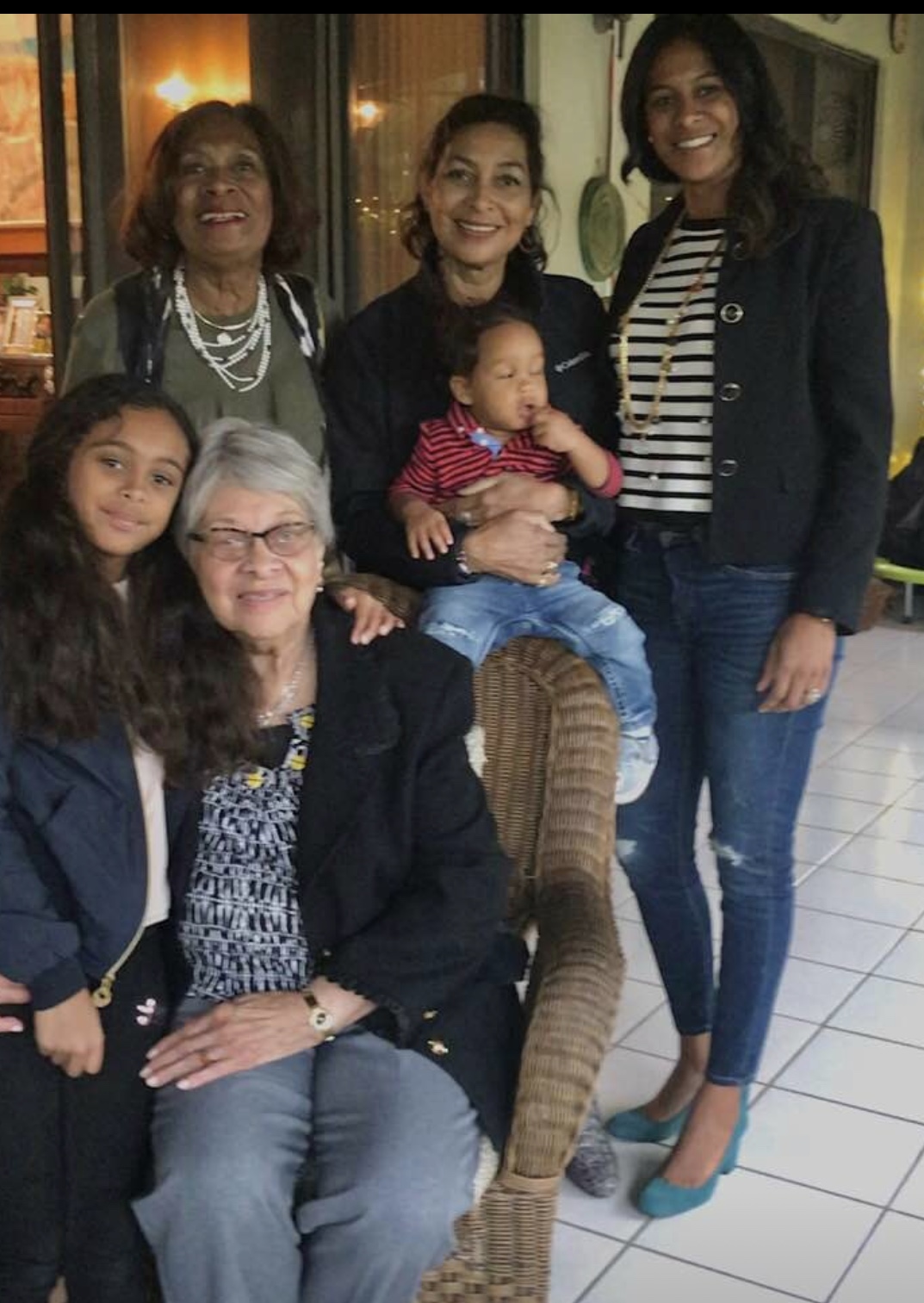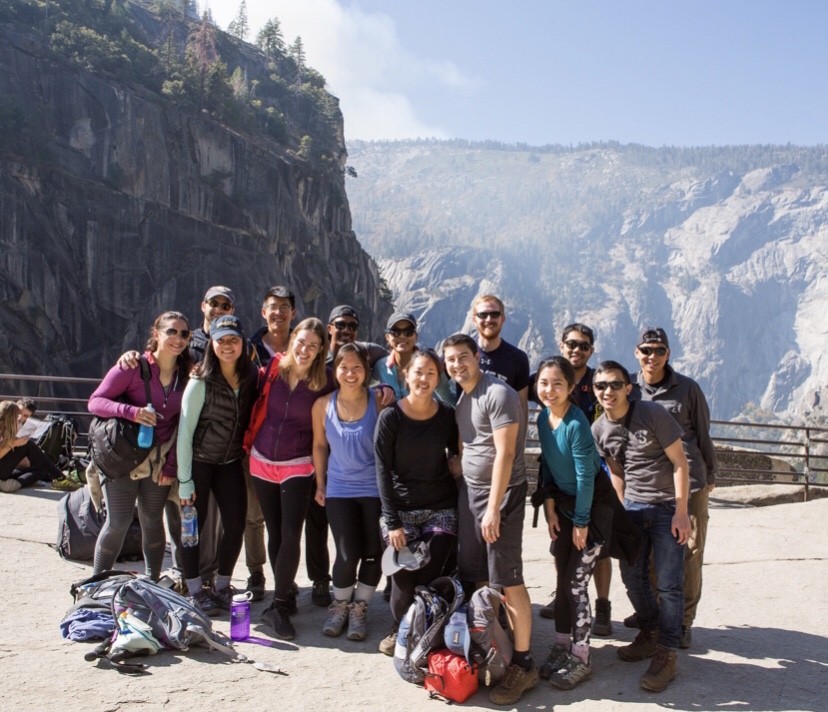Resident Interview: Arielle Klepper, MD, PhD
A Conversation with Arielle Klepper, R3 Resident in the Department of Medicine
Does your name have a special meaning? Does it suit you?

My name is a meeting of worlds: my mom is from Haiti and my dad is a Jewish guy from Brooklyn, and they wanted a name that suited both cultures. Arielle is a Hebrew name that means, “Lioness of God” and the “elle” is a French ending that makes it feminine, which is representative of Haiti. My name is very me and I do like it. When I was a little girl, I would watch the Little Mermaid and tell everyone I was the luckiest girl in the world.
Where were you born and raised? What is your fondest memory of your hometown?
I was born and raised in Pittsburgh, Pennsylvania, and many of my memories are based on the fact that our entire family, my husband’s and mine, are diehard Steelers fans. I have so many memories of Sundays at home and Thanksgiving – my absolute favorite holiday – when everyone is wearing Steelers’ jerseys and everywhere, in the grocery stores and in the neighborhoods, people stop what they’re doing to watch or talk about Steelers football. Score updates are not unusual even during Mass in the Catholic churches in the old Polish Hill. Following the tragic Tree of Life shooting, the Steelers logo was to used in fashion as a symbol of solidarity bearing the motto “stronger than hate” that now hangs everywhere you turn in the city. Being around that strong sense of community makes me nostalgic.
Do you come from a large family? Tell me about them.

No. Now, it’s just my mom, my brother and my maternal grandmother, who’s lived with us since I was 6 months old. My parents are two different forces that came together: they merged different cultures, value systems and approaches to life. My dad passed away from melanoma when I was in medical school and he was a real character: loud, outgoing and larger than life. He was an Economics professor and researcher at Carnegie Mellon and his class was infamously dubbed, “Kleppernomics.” He ran game theory and bidding experiments to make people think – and many friends, including my husband, said it was the hardest and most rewarding of courses. His academic identity fueled him and permeated our lives, and bedtime stories were often about how spinoffs are formed or the crux of the tire industry – and he somehow made even the driest topics interesting. His drive to characterize patterns and understand things was an integral part of his personality; it gave him purpose and motivation. His work kept him sane during chemo. He was a Chair Professor and prolific researcher whose work afforded us the opportunity to travel in a subsidized fashion through his collaborations in Italy, Eastern Germany and, the year before he passed away, in Sweden where he was awarded the Global Award for Entrepreneurship Research. We learned about economics and politics because of his work; it was impossible to separate the man from the job.
My mom imparted a deep commitment to service to both my brother and me. She spent many years working in the not-for-profit fields and most recently, served as the director of a non-profit for children from socioeconomically disadvantaged backgrounds. She remains a great inspiration for both my brother and me to pursue careers dedicated to service. My brother is a teacher who works in restorative justice and learning through art, and is also a filmmaker; he teaches film and comedy in jails. All of our lives could have been very different so we consider ourselves lucky to be able to help people in our own way.
How far back can you trace your ancestry? If you could interview your great-grandmother or great-grandfather, what might you want to know?
My great grandparents on my dad’s side were Ashkenazi Jews from Eastern Europe. My maternal grandfather was descended from pirates that descended upon Haiti, so we are a mélange of backgrounds and a rainbow of colors. Interestingly, he always had a love of working on and being on boats. The milgrained ring that I wear was my great-grandmother’s ring and I heard that she was an interesting character who spoke Yiddish and made an intense Manhattan clam chowder, and ate lots of brined foods and pickled vegetables; in my imagination she was a fierce matriarch and everyone regarded her fondly. I would like to ask her about coming to America to start a new life.
Is Medicine personal to you? How and when did you decide upon your field of study?
Biomedical research is definitely personal. My dad’s example pushed me to ask questions and to find ways of integrating research and medicine differently than it is classically done, in segments. UCSF marries opportunities and creates space for people to think about different approaches to career. My initial reason for wanting to be a physician began in my freshman or sophomore year of high school, when I went on a family vacation to Haiti. My family there live in a city called La Boule in the hills above Port au Prince; it’s a beautiful area, but I had never spent much time exploring rural Haiti. My mom had friends who collaborated at Hospital Albert Schweitzer (HAS) in the Artibonite Valley, a remote and very depressed region. I was interested in biology and was curious about Medicine, so family friends arranged for me to spend a weekend at the hospital. It was the first time that I’d seen such disparities in living conditions. The doctors at the HAS were from all over the world and the integration between them and the community was amazing; they spoke the local language and provided resources and services that weren’t available for miles. I didn’t understand exactly what I was seeing, but I was so moved by how organically everything functioned, applying skills to provide services that helped and empowered the local population. It showed me that medicine is a collaborative and service profession as well as biological exploration and human understanding – it was powerful, fundamental, and wonderful.
One of your published journal articles, in part, has an intriguing title: “Building failure into successful science . . .” What does that mean and does its premise translate into life or a philosophy?
When I was at Mt. Sinai, I was tasked with building takeaways from an innovations conference and I co-authored an article summarizing how to approach innovation and collaboration, and how to make it relatable. What I found was that there were similarities to the economic theories that my dad had explored; that innovation works when people are exposed to people and ideas different than your own. The more you collaborate with a diverse group of people, the better things go. It forces you to confront things that you may not have wanted to think or talk about. If you’re around only people who think like you, then there is no ability to push and expand. Real innovation is the result of the push-pull of exposure to different perspectives and sometimes creates failures – results that on the surface don’t seem like success. However, it can be the offshoots of those results that lead to innovation and we start thinking about why things aren’t working and how we get around those obstacles. Building failure into success offers a path forward and we see parallels in industry, such as what happened in San Francisco with the semiconductor industry; its spin-offs were the results of lessons learned from a parent company that broke apart. Those incubators, when things blow up and we have to find something new, create opportunity and innovation.
Talk to me about women in the sciences. Who inspired you and whom in turn do you hope to inspire?
The connection to service also connects to the idea of equity, something that has been a thread throughout my career. I’ve been involved with the Women in Leadership Development and, I believe, that the commitment to equity and diversity is important, that better things happen when a diverse group is involved and new ideas are brought in. In medical literature, there are articles that speak to the idea of the collective intelligence, with the intelligence of the group being enhanced. I identify culturally and racially, and as a biracial woman of multicultural descent, the beneficiary of a diverse environment. Personally, my grandmother and my mother, as immigrants who came to a new world and took charge in it brightly and boldly, inspired me. When pursuing my PhD mentor, Dr. Andrea Branch at Mt. Sinai, was integral in helping me understand unconscious bias in Medicine, and in research, and how to actively take them to a more conscious level.
What is your current favorite obsession? Is your husband a partner or a patient observer?
In general, my husband is definitely a partner and ringleader, especially during football season when he’s the first to pull out our Steelers jerseys. We love food and dining out in San Francisco, both of which are nurtured by Harry Hollander in the Department of Medicine. My newest favorite obsession is coding and programming – it’s fun, it’s challenging, and I stay up late nights to piece things together. For this one, my husband is a patient observer.
If you had to be stuck in one of the Moffitt-Long elevators, what real or fictional character would you want to be stuck in there with you?
Ruth Bader Ginsberg. She is such a cool woman and I’d have so many questions about her life, her experiences, and how she still does all those pushups. I’d love to take her energy and learn from her.
Share your personal wish for 2019.

This will be the end of residency, my class, and for me. Part of the magic of being at UCSF and the Department of Medicine has been having the most fantastic colleagues. I feel inspired and lucky to have been around this amazing group of residents. They are the most energetic and thoughtful people. I would hope that their next steps are amazing launch points for great careers: to next steps, to continued growth, to new beginnings come July. And, I hope my own transition goes well!
Happy New Year, Arielle.